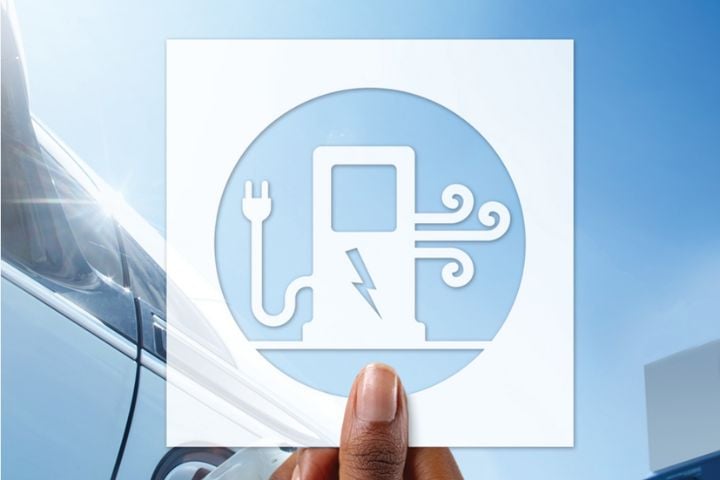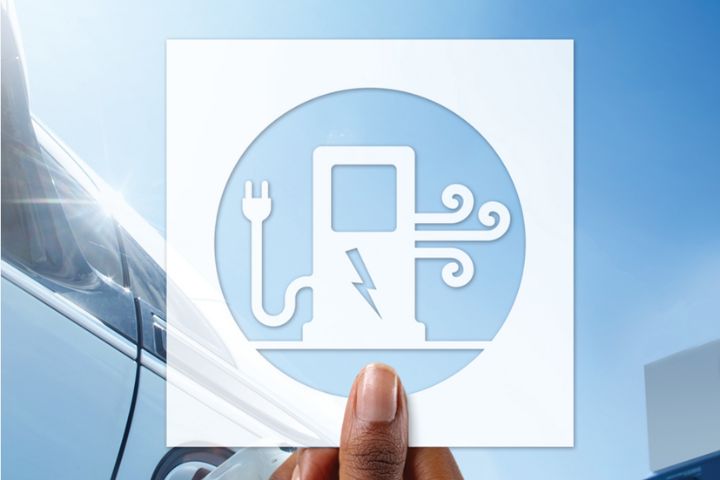The green economy is booming in Georgia, with the manufacture of solar panels and electric vehicles (EVs) on the rise. As EV ownership begins to grow at a corresponding rate, we find our state at the crossroads of revolutionary change—one that promises not just a greener tomorrow, but includes significant public health benefits.
Recent reports from the American Lung Association (ALA) offer a closer look at the profound impact that EVs can have on the health and well-being of Georgia's residents. From urban centers to rural communities, the transition to zero-emissions vehicles is poised to become the catalyst for a healthier, more resilient Georgia.
The Big Picture: Air Quality and Electric Vehicles
We know that increased adoption of electric vehicles can reduce greenhouse gas emissions and improve air quality. But how big of an impact can they truly have on public health?
 Image credit: American Lung Association
Image credit: American Lung Association
In “Driving to Clean Air: Health Benefits of Zero-Emission Cars and Electricity,” the ALA found that transitioning to 100% zero-emission new passenger vehicle sales by 2035, coupled with non-combustion electricity generation, would yield tremendous public health benefits across the United States.
The ALA's 2023 "State of the Air" report looks at the health benefits the state of Georgia will realize by 2050 if electric vehicles account for 100% of new passenger vehicle sales and 100% of the state’s energy is generated from non-combustion sources by 2035.
More specifically, the benefits include:
-
$22.4 billion in public health benefits
-
2,030 fewer premature deaths
-
59,200 fewer asthma attacks
-
290,000 fewer lost workdays
Let’s review what the research shows about the health impacts of the pollution created by passenger vehicles, and how we can ensure we achieve this cleaner, greener future for all Georgians by transitioning to EVs.
Understanding the Problem of Air Pollution
The "State of the Air" report gives context for the urgency to change. Persistent challenges are faced by over 35 percent of Americans, approximately 120 million people, residing in areas with unhealthy ozone levels and/or particle pollution.
Decades of research underscore the undeniable link between poor air quality caused by combustion engine motor vehicle traffic and various health issues such as increased asthma attacks, heart attacks, strokes, lung cancer, and premature death.
Disproportionate Health Impacts on Historically Disadvantaged Communities
What stands out starkly in the State of the Air Report is the burden of these health outcomes that is disproportionately borne by communities of color and lower-income communities. A person of color is 64 percent more likely than a white person to live in a community impacted by unhealthy air, and 3.7 times more likely to live in a county with the worst air pollution in the United States.
Proven Air Quality Improvements of EV Adoption

The ALA cites research from the Keck School of Medicine at the University of Southern California that demonstrated positive air quality and public health improvements following the deployment of EVs in California between 2013 and 2019.
Even with relatively low levels of EV adoption during this period, the study found a correlation between increased registrations and corresponding reductions in asthma-induced visits to emergency rooms, pointing to the potential benefits of embracing cleaner transportation technologies.
Accelerating EV Adoption in Georgia
The goal of increasing the adoption of electric vehicles as rapidly as possible is clear. So, how do we ensure that Georgia arrives at our clean energy future on time so we can improve public health outcomes?
Incentivizing EVs and Charging Infrastructure
One key piece of the puzzle is to take full advantage of the provisions of the Inflation Reduction Act and Bipartisan Infrastructure Law designed to incentivize the purchase of electric vehicles and both public and private investments in EV infrastructure.
-
In terms of infrastructure, Georgia is sixth in the nation - and the leader in the Southeast - for public charging stations. Our state is also due to receive $135 million in federal funding to continue expanding this critical infrastructure statewide.
-
Georgia is also trending in the right direction in terms of EV adoption. According to an August 2023 report from the Southern Alliance for Clean Energy, electric vehicles accounted for 7.2% of sales in Q2 2023, representing a 41% increase over the previous year.
>>Learn more about tax incentives for upgrading to an electric vehicle in our free toolkit.
All of these actions are helping to place our state on a path toward cleaner air, healthier communities, and reduced air pollution.
Setting New Emissions Standards to Spur the Transition to EVs
Many states are beginning to adopt a new standard, Advanced Clean Cars II, which sets new standards that demand cleaner combustion engines in new car models and aims for 100 percent zero-emission vehicle sales by 2035. Six states have already adopted this standard, and several more are in the process of doing so. Georgia is not yet among them.

The U.S. Environmental Protection Agency has also proposed new rules that will require stricter limits on harmful emissions, to encourage drivers to switch to zero-emission vehicles by 2032.
Emphasizing Equity in Electric Vehicle Policies and Incentives
A critical concern highlighted by the “State of the Air” report is the adoption gap among populations with lower socioeconomic status, and the critical need for targeted policies and investments to ensure that the public health benefits of zero-emissions technologies reach underserved communities.
As Georgia sets its sights on a future dominated by EVs, these findings serve as a timely reminder that the road to clean air must be inclusive, ensuring that the health benefits of sustainable transportation reach every corner of the community.
One example of legislation targeting low- and moderate-income communities is the federal Inflation Reduction Act of 2022, which created the first federal tax credit for used zero-emission vehicles. Income-qualified buyers can receive up to $4,000 in tax credits - available as an instant rebate at approved dealers - for purchasing a used zero-emission vehicle.
Here’s How Georgia Can Boost EVs and Improve Public Health
More must be done to ensure all Georgians have access to EVs and can benefit from the transition to zero emissions.
Stronger incentive programs and community outreach, for example, can help support pathways for lower-income residents to own or drive new and used zero-emission vehicles. Offering innovative options for financing or car-sharing services may also offer a solution to help build equity into local and state policies.
Regardless, every EV helps improve public health. The more you can do to participate in this transition to electric vehicles, the more you are part of the solution.
Learn More About Upgrading to an Electric Vehicle in Georgia
Are you interested in purchasing an electric vehicle, but have questions about switching? Our “How to Switch to an Electric Car in Georgia” toolkit has all the answers to common questions. Check it out!






